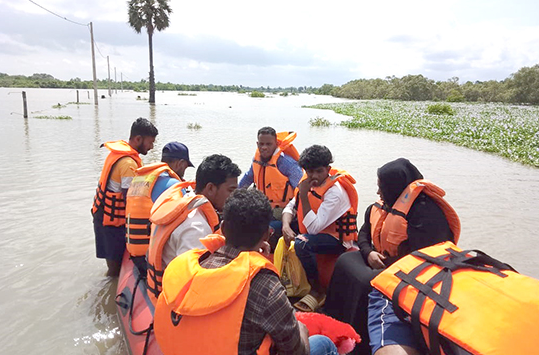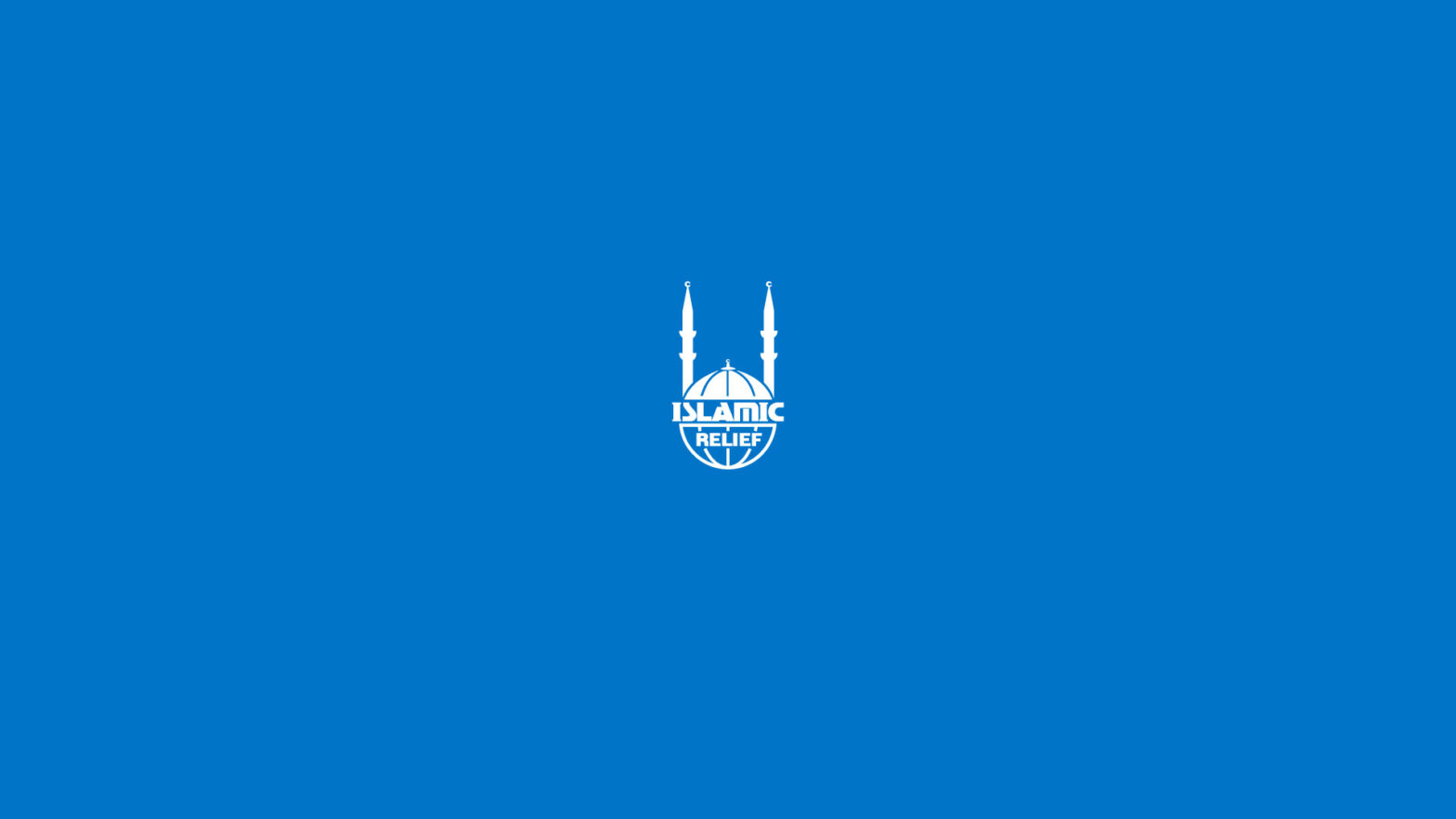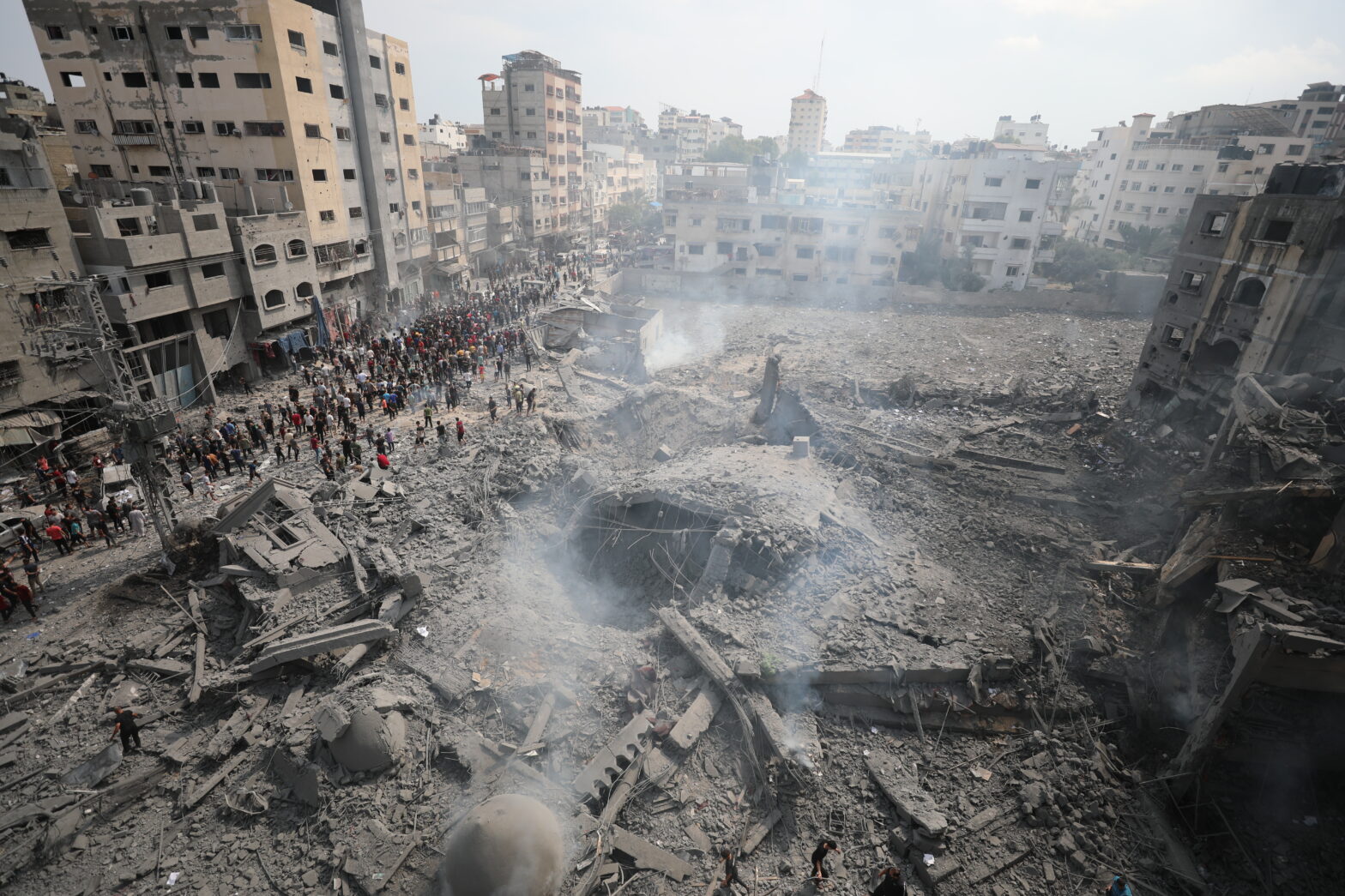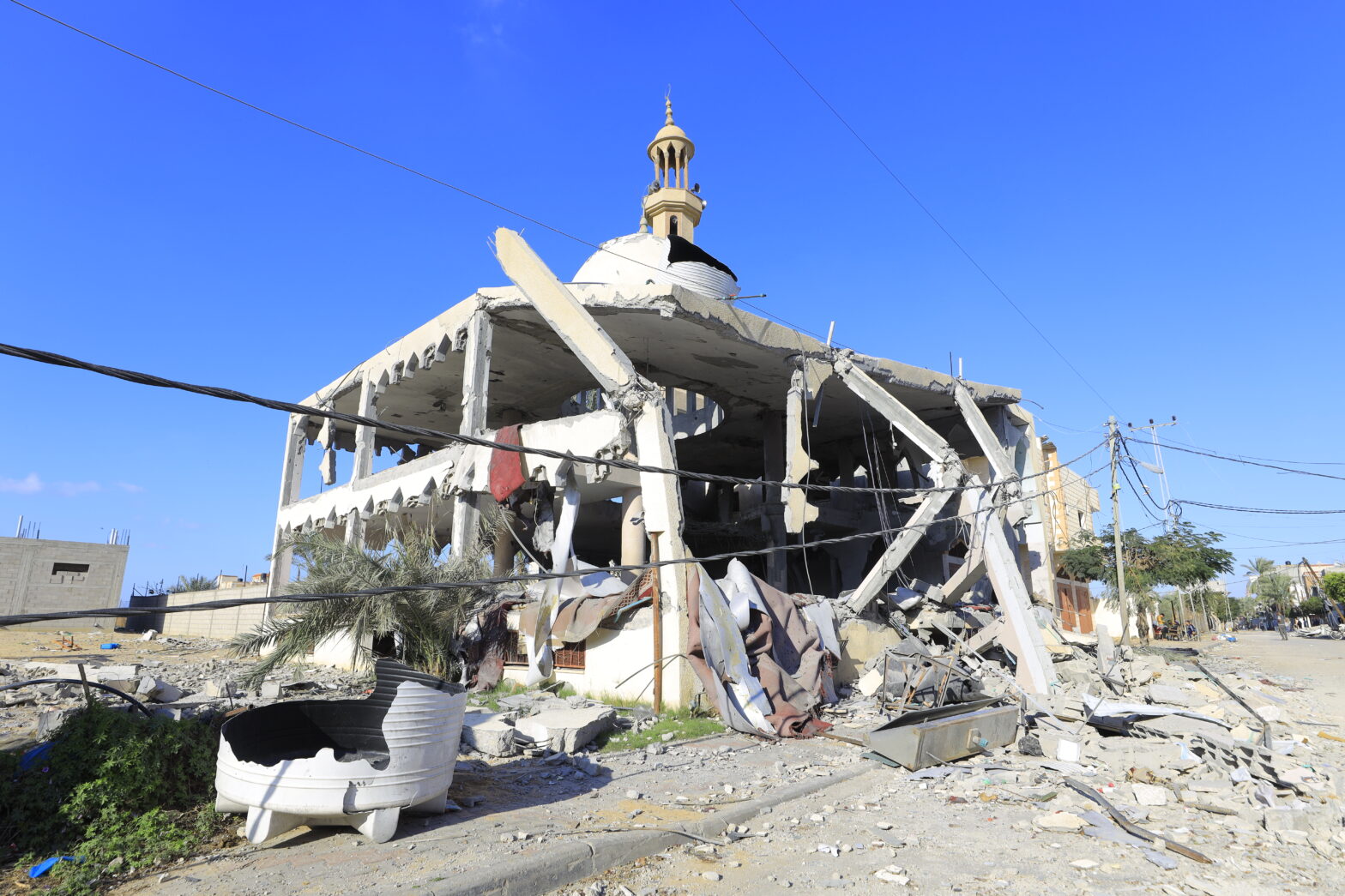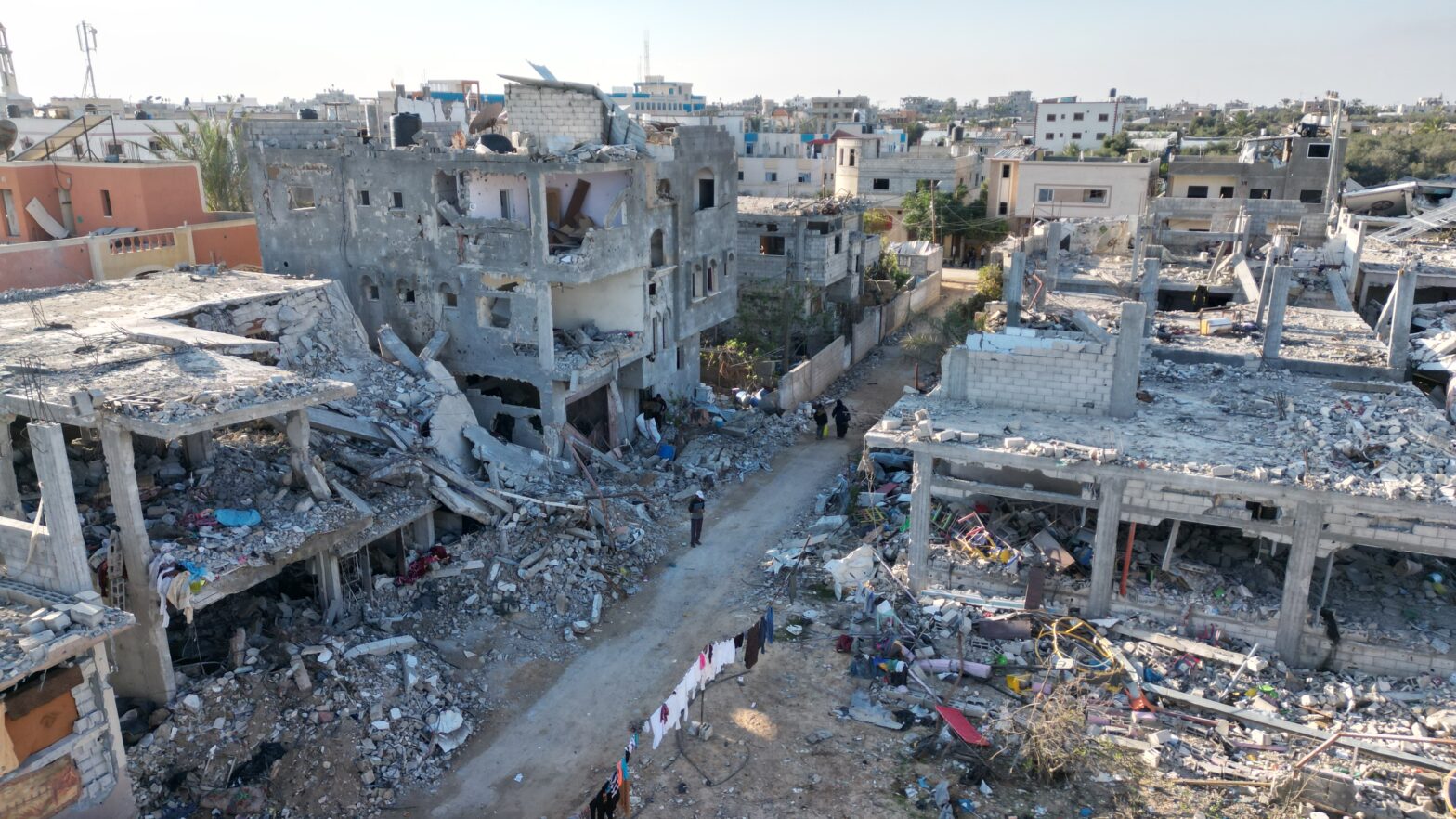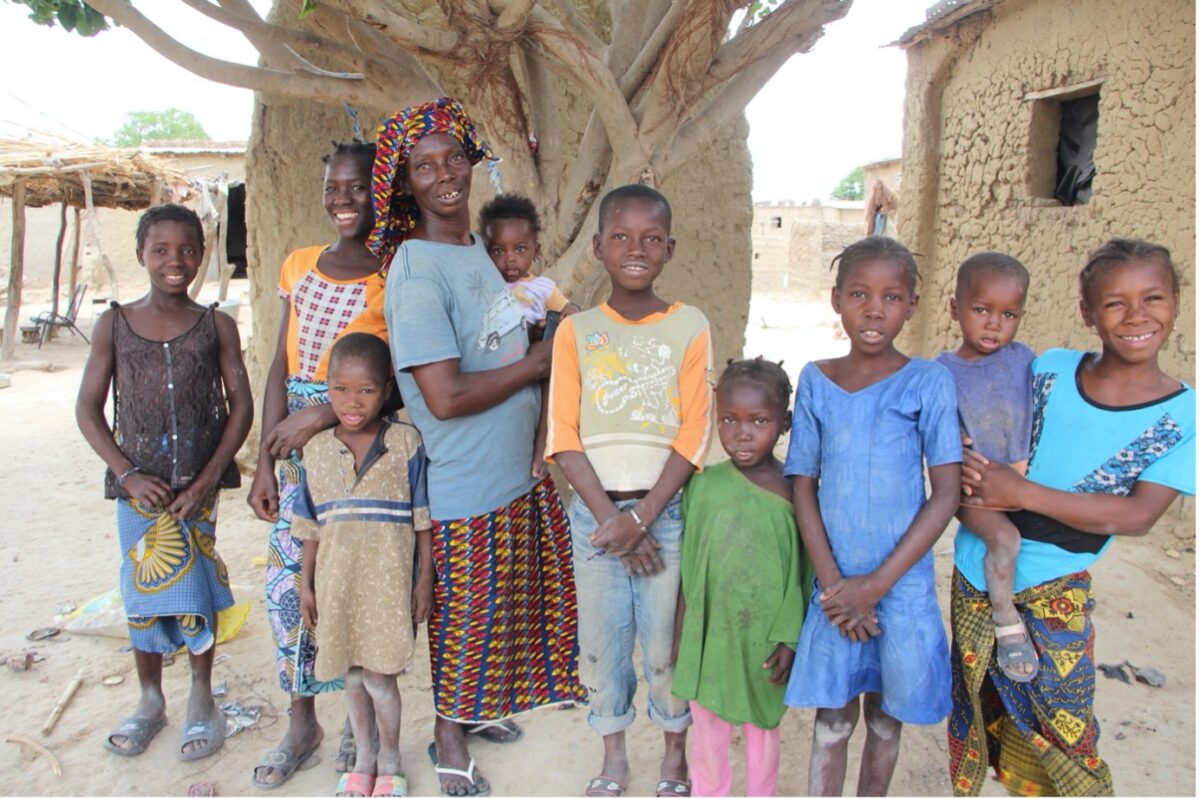As Gaza’s displaced families suffer from a drop in temperatures, an Islamic Relief aid worker* describes biting shortages and a December unlike any other.
It’s been almost 8 days since the last time I shared our story with you. We have been disconnected from the internet and our phones this whole time. It’s been like the Dark Ages. People who want to check on their family and friends have to travel on foot or ride a horse and cart to do so. Of course, in our current situation, making such a journey comes with huge risks. It reminded me of The Kingsroad in Game of Thrones, where travelers could face danger at any moment.
The situation here is getting worse every moment. Winter, like in Game of Thrones, has already come. Last week we had heavy rainfall. Rain used to be a pleasant sight for the Palestinians and we enjoyed it, but people are now living in plastic tents in the streets, without any source of heating. People fled their homes at the beginning of October, when it was still relatively hot. They wore light summer clothes and most didn’t pack for winter. It is now very cold and no one has suitable clothes.
My children are feeling the cold. My daughter is always saying that she has a stomachache. I tell her she will be okay, but she is drinking unclean water; she is eating poor, mostly canned, food; she is wearing only a few layers of clothing. It’s certain that she’ll get sick. In fact, if any person gets sick in the house, everyone will become ill.
Healthcare centres and hospitals are barely able to handle the flow of wounded arriving at their emergency rooms, let alone deal with people feeling ill. A few days ago, my brother got a bad cold. He was shivering and crying in pain. My mum urged me to take him to the hospital, but I told her they would laugh at me at the hospital if I brought someone who was only suffering from a cold. I went to the pharmacy to get some paracetamol for him, but there was no medication available – very few stores still have medicine.
My colleague, who I’ve told you about before, can’t find diapers for her daughter. I’ve heard reports that in parts of the enclave women can’t find sanitary pads. It’s an unimaginable situation. Palestinian people have to suffer even for the smallest things.
A vibrant city now sick and pale
Yesterday, I went out to get my hair cut. In the streets, one can see people’s faces full of despair, sadness, and loss. The city used to be vibrant, full of life. Now, it is sick and pale. There is smoke coming out of every house as people burn wood to prepare food. The streets are full of rubbish since there is no fuel for the trucks that would usually collect it. Some of the taxis have started running their cars on cooking oil – another Palestinian invention to adapt to this siege. It gets the cars moving, but is polluting the air and suffocating the passengers.
There are donkeys and horses in every street. There are people carrying plastic gallons looking for water. There are stalls in the markets selling batteries, flashlights, phone chargers, canned food, and few vegetables are to be found. The scenes are dystopian.
The barber told me he is letting go of his shop. He explained that he does not have any power to charge his tools. The owner of the building wants to kick him out and use the place. He can’t pay the rent because he is not working. It’s only because I’d been his father’s customer that he welcomed me in and cut my hair.
Celebrations all over the world, except for Gaza
Dear readers, we are totally on the verge of collapse. We’ve lost our beloved relatives and friends, our homes, our streets, and our city. We are trying to stand tall despite all these losses, but we can’t. It hurts me to spend December in displacement. I remember Gaza at this time of year as full of decorations, lights and colors. I would walk in the streets and see the clothes shops putting on end-of-year sales, restaurants making special offers, and many places announcing Christmas events.
This year, I see people all over the world celebrating, but in Gaza we are living in hard times. All the world is buying gifts, but we are happy if we can find a kilo of salt or an ounce of coffee. People around the world are listening to music, and we are listening to drones buzzing and the sounds of bombs and explosions.
I am sorry, my readers, I do not want your celebrations to stop, but I want our story to carry on and I want this war to end right now.
Please help Islamic Relief support people in desperate need in Gaza: Donate to our Palestine Appeal now.
*This blog is anonymised to protect the safety and security of our colleague and others mentioned. Read the other blogs in this series here.
Editor’s note: This blog was submitted amid a fast-changing and deepening crisis. The information was correct as of 18 December 2023.



